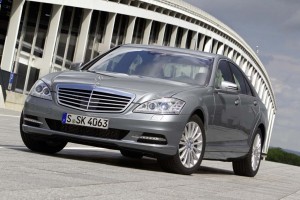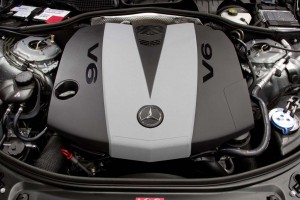Already facing a lawsuit claiming it cheated on diesel emissions tests, Mercedes-Benz has been served a second class-action lawsuit claiming that it used a so-called “defeat device” to get around U.S. regulations.
The new suit was filed by Hagens Berman, the same Seattle law firm that first levied a complaint against the German automaker back in February. That’s a claim reminiscent of the charges filed against Volkswagen AG last September by the Environmental Protection Agency.
“The fact that Mercedes passed the dynamometer test in all tests, but failed the real world test, is suggestive that like VW, Mercedes is implementing a ‘defeat device’,” the law firm said in a complaint filed in the U.S> District Court of New Jersey.
But where Volkswagen AG quickly acknowledged cheating with a 2.0-liter turbodiesel – and, subsequently, with a 3.0-liter engine, as well – Mercedes’ parent Daimler AG has denied the allegations.
“We consider this class action lawsuit to be unfounded,” the carmaker said in a statement issued Friday. “Our position remains unchanged: A component that inadmissibly reduces emissions is not used in Mercedes-Benz vehicles.”
There have been a number of allegations raised against a variety of automakers since the VW scandal broke last September, mostly in Europe. But industry leaders have noted that, by definition, there can be a wide gap between the way a vehicle’s emissions system performs in a carefully controlled test and what happens on the road, where any manner of variable can raise – or lower – pollutions levels.
(Despite lawsuits, Mercedes investing $3 bil into diesel development, says CEO. Click Here for the latest.)
The critical question is whether a maker uses subterfuge specifically intended to pass emissions tests. What snagged Volkswagen was the use of software designed to detect when a vehicle is undergoing emissions tests. Under specific conditions, the emissions control system will then perform differently than it would anywhere else.
VW’s defeat device lowered levels of smog-causing oxides of nitrogen but also appears to have reduced both performance and fuel-economy. That maker has been struggling since last autumn to come up with a fix that will meet the approval of the EPA. A federal judge in San Francisco last month delayed a deadline for VW to deliver an acceptable solution.
Separately, VW is facing hundreds of lawsuits filed by dealers, investors and owners, as well as a civil action filed by the U.S. Justice Department that could result in as much as $46 billion in penalties.
In sharp contrast, federal regulators have not indicated they found any problem with the Mercedes diesels. Theoriginal lawsuit bases its claims on research done in Europe. The EPA has sought information from Daimler but has so far not opened its own official investigation.
(For more on the original lawsuit and EPA investigation, Click Here.)
The Seattle law firm now says that additional tests support the original claims under virtually all road conditions when using the Mercedes BlueTec diesel engines.
As did Volkswagen before the scandal broke, the luxury maker claims its technology provides three often conflicting benefits: improving fuel economy and performance while also lowering emissions.
Mercedes has significantly expanded the use of diesels in its U.S. fleet in recent years, though they make up a significantly smaller percentage of its sales than at VW, where diesels accounted for 25% of its American volume prior to the EPA’s allegations. Since then, VW and subsidiaries Audi and Porsche have been unable to sell their diesel models in the States.
(For the latest on VW’s diesel travails, Click Here.)



